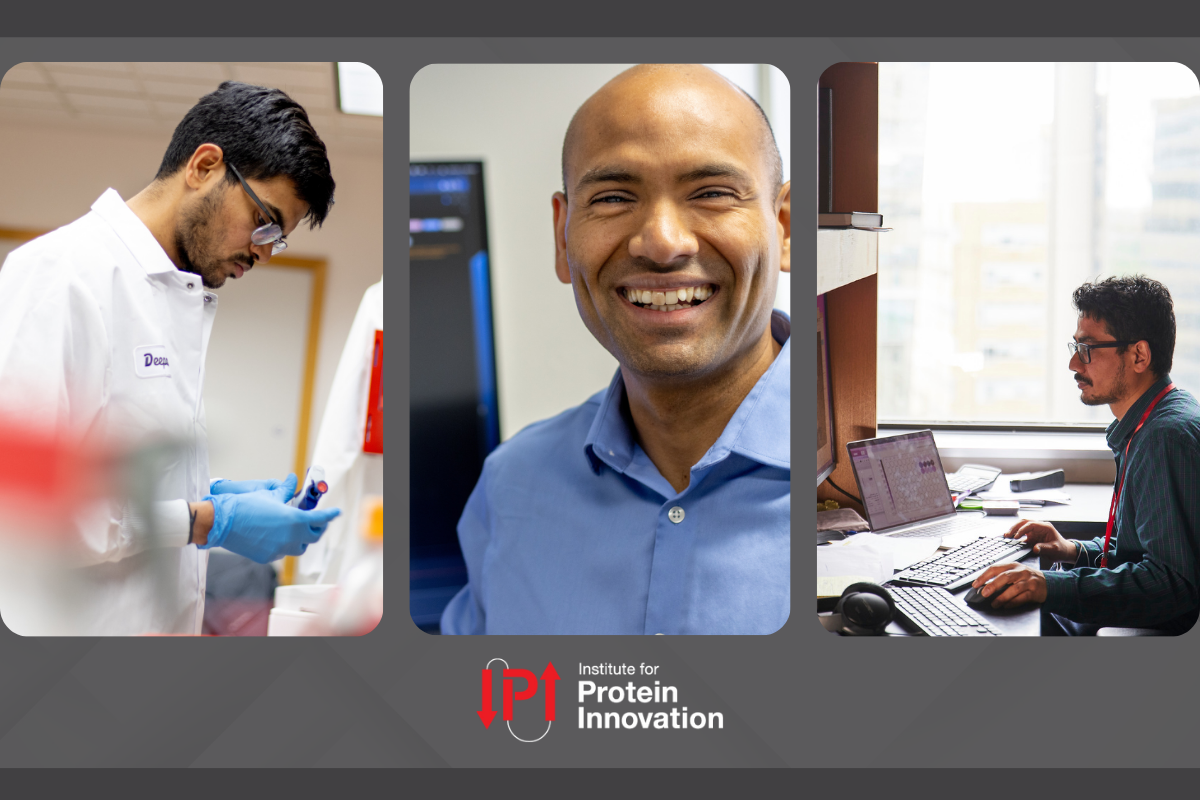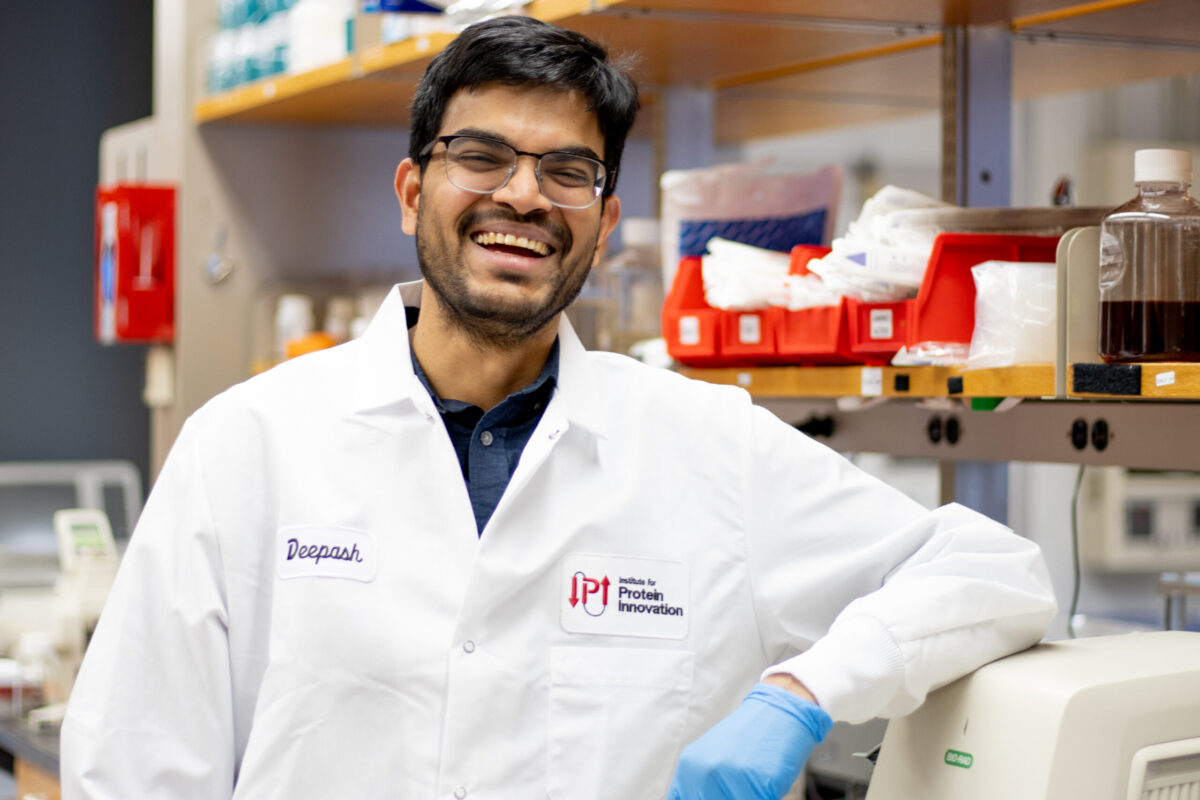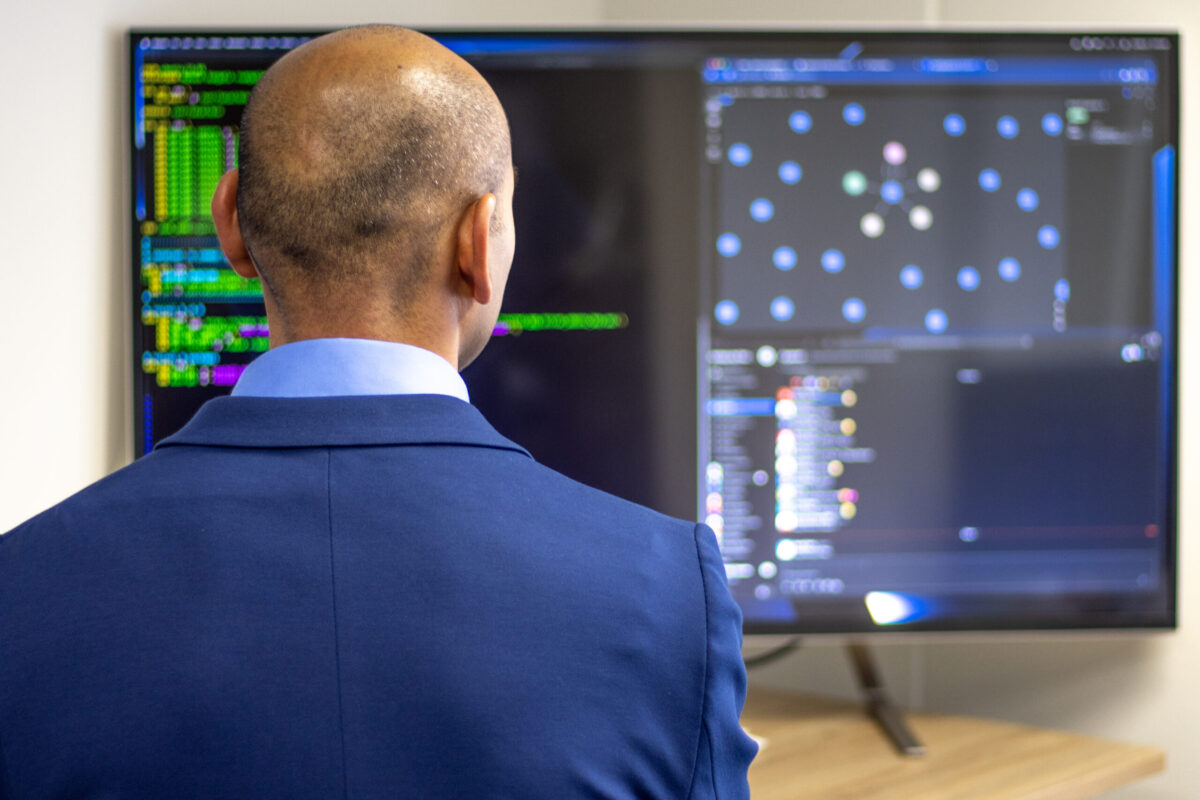In 2022, IPI successfully broadened its expertise and streamlined its pipeline by bringing in new scientists with diverse specialities and interests. These scientists, who’ve joined IPI from around the world, are determined to piece together the confounding puzzle of protein research, channeling their passions to further our knowledge of biologic systems. Together with the full IPI team, they’ve launched the Institute forward in its mission to advance protein science to accelerate research and improve human health — we’re excited to see where their explorations lead.
Deepash Kothiwal
Antibody Discovery Scientist
Deepash Kothiwal is an academic at heart, always interested in deepening his understanding of biologic mechanisms. Originally from Kishangarh, India, he completed his Ph.D. in the Laloraya Lab at the Indian Institute of Science in Bengaluru, where he investigated cohesin, a key determinant of chromosome architecture, and the impact of cohesin dysfunction in cell wall defects in budding yeast. He then joined the Buratowski Lab at Harvard Medical School as a postdoctoral fellow using mass spectrometry to understand RNA polymerase II C-terminal domain phosphorylation.
As a scientist on the Antibody Discovery team, Kothiwal is helping expand the repertoire of IPI’s yeast display libraries and searching for new ways to optimize the platform for high-throughput discovery.
Mahesh Vangala
Senior Software Engineer
For Mahesh Vangala, collaboration is the key to research. And as senior software engineer at IPI, he helps drive collaboration by building user-friendly digital tools to organize and analyze lab data.
He developed his data science and bioinformatics know-how over more than a decade of experience in academic, research and clinical settings. Originally from Tadipatri, India, he holds master’s degrees in bioinformatics from the University of Madras and Virginia Commonwealth University. Before joining IPI, he worked with clinical and genomics data at Dana-Farber Cancer Institute and the University of Massachusetts Chan Medical School. Since joining IPI in April, he’s been busy applying his passions to create an on demand, heavy lifting, centralized system. His goal? To democratize data throughout the lab.
Nirakar Basnet
Antibody Production Postdoctoral Fellow
Nirakar Basnet grew up in Kathmandu, Nepal, a city filled with temples and their tales. He sees research as a method to tell a very different story. After his undergraduate degree at India’s Fergusson College, he used imaging techniques to chronicle protein transportation pathways at the Max Planck Institute of Biochemistry and the University of Bonn. During his Ph.D. at Max Planck, he applied cryo-electron microscopy and tomography to outline SSNA1’s role in neuronal development and microtubule branching.
Now, after a postdoctoral stint studying axon branch development at the National Heart, Lung, and Blood Institute, he joins the IPI team as a postdoc in search of antibodies to target opioid receptors in a unique pathological state — research that could someday open a new chapter in the development of non-addictive painkillers.
Sources: Deepash Kothiwal, Mahesh Vangala, Nirakar Basnet, info@proteininnovation.org
Writer: Caitlin Faulds, caitlin.faulds@proteininnovation.org
About the Institute for Protein Innovation
The Institute for Protein Innovation is pioneering a new approach to scientific discovery and collaboration. As a nonprofit research institute, we provide the biomedical research community with synthetic antibodies and deep protein expertise, empowering scientists to explore fundamental biological processes and pinpoint new targets for therapeutic development. Our mission is to advance protein science to accelerate research and improve human health. For more information, visit proteininnovation.org or follow us on social media, @ipiproteins.





